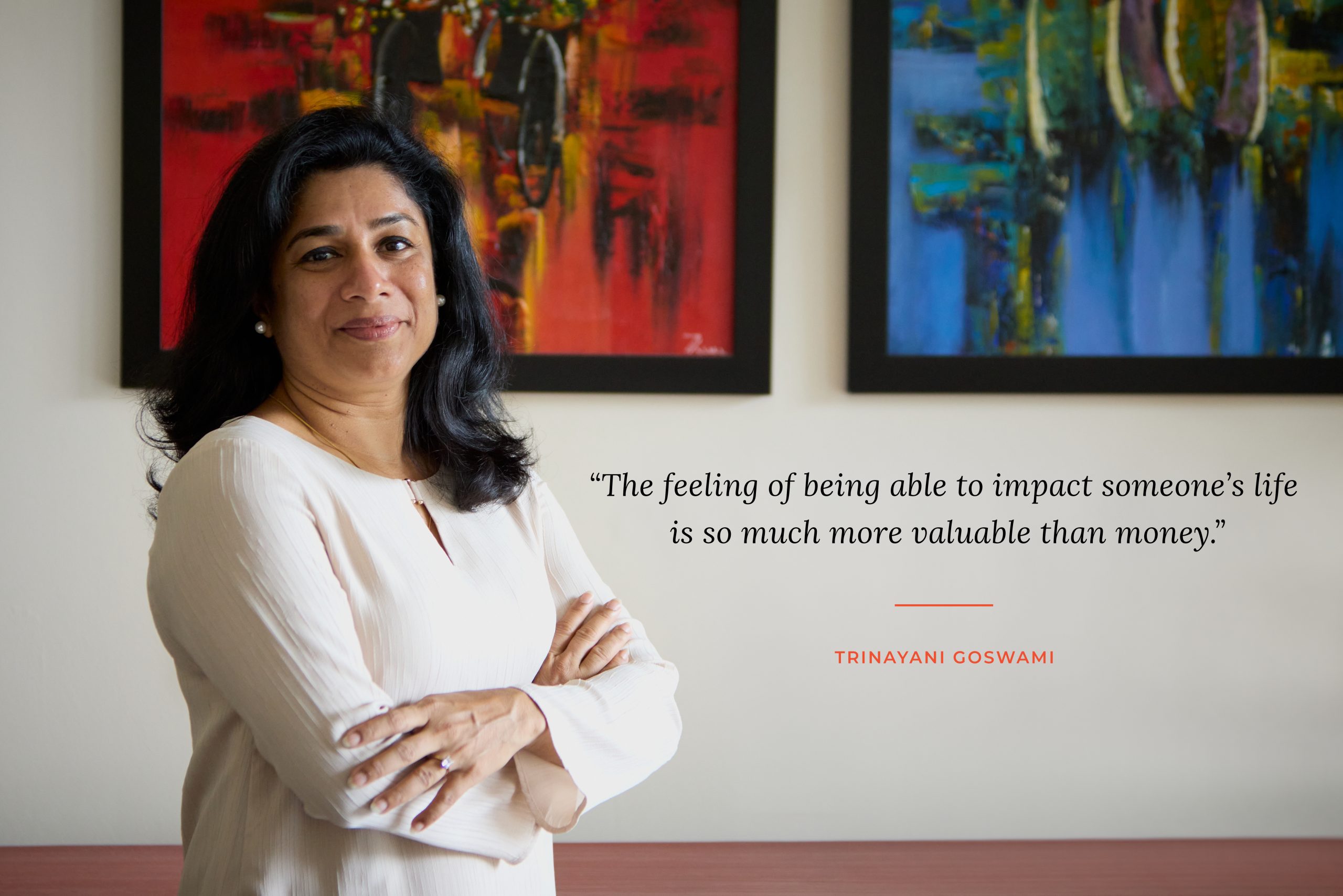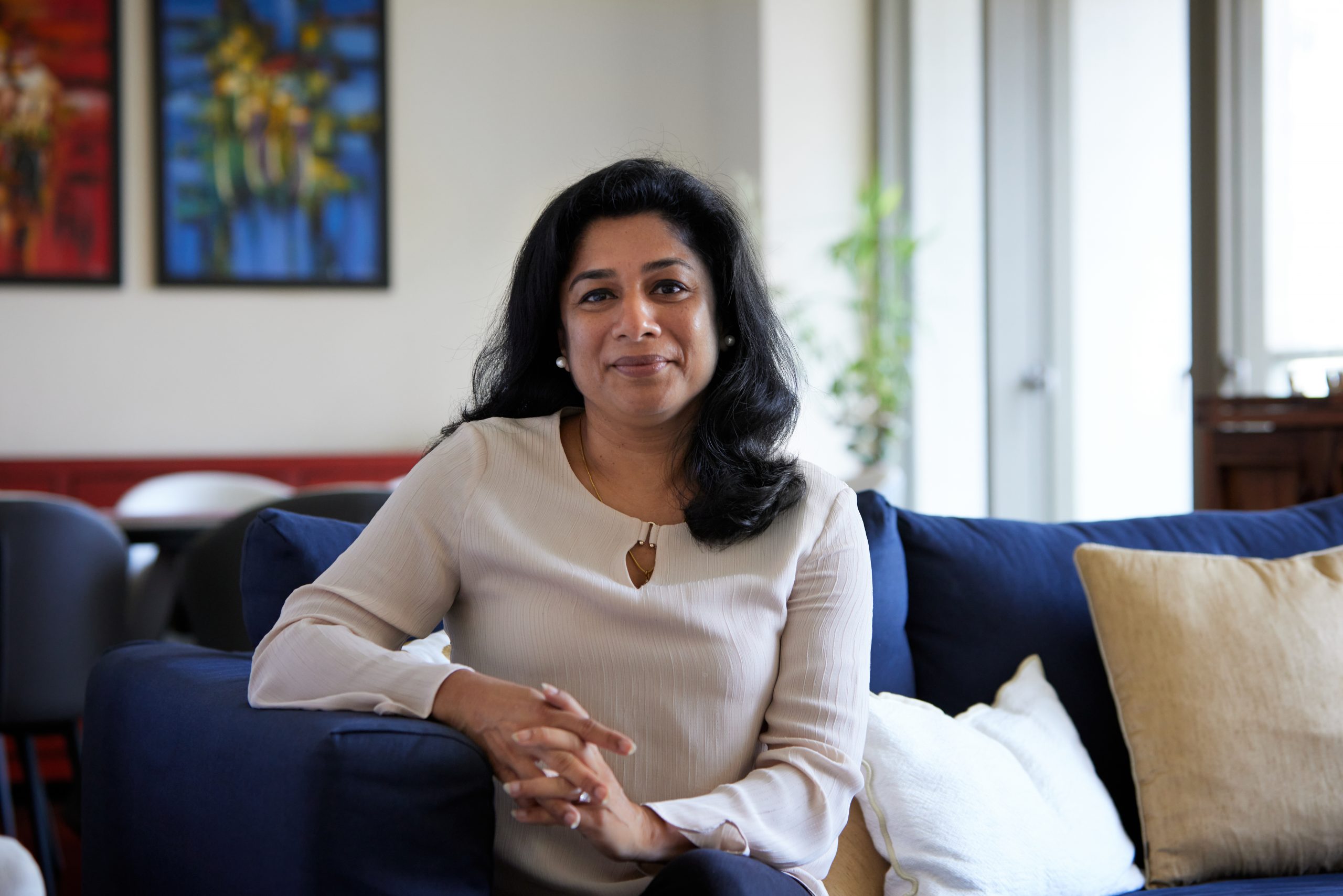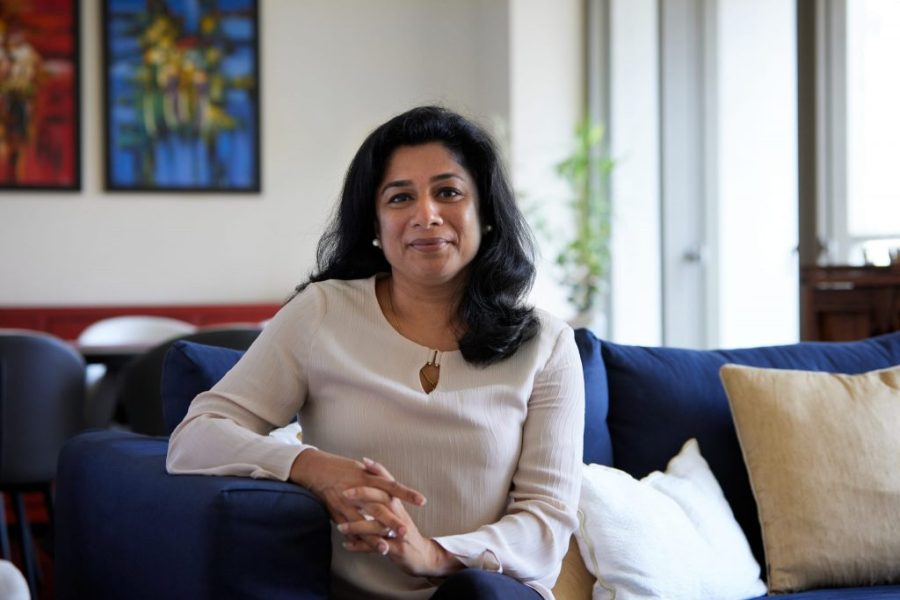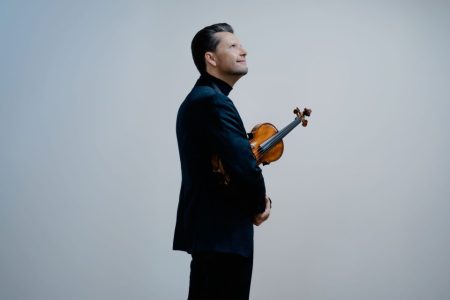What’s stopping you from having the life you want? That’s a question many of us will pose at some point in our lives. And one that Macao-based life coach Trinayani Goswami explores every day at work.
Goswami, who moved to Macao with her husband and two children in 2014, left a thriving career and social life behind in her home country of India, where she was a career advisor. So while Goswami adjusted to life in Macao, she was already a few steps ahead.
Seeing it as an opportunity, she started connecting with other newcomers and realised they needed help navigating their new lives and careers in the city, too.
“I saw a lot of women, in particular, arriving with their spouses or partners, going through the same cycles [of social, professional and personal changes]. I was the one who people were turning to for advice,” Goswami recalls. “And I realised, this is not just a hobby – it’s a profession.”
‘All about human connection’
As she talked to more and more people about their anxieties and fears, Goswami realised that she was no longer the same person as in India. She couldn’t pick up where she left in her profession as a career coach because she wanted to focus on the whole human experience – not just this one aspect.
Leveraging her experience, Goswami entered the world of life coaching. Unlike career coaching – where the focus includes professional planning, negotiation and managing transitions – life coaching helps people reach their full potential by finding motivation, identifying obstacles getting in their way and recognising patterns of resistance to change. The practice traverses a host of areas, including relationships, self-confidence and health.
The concept of life coaching was first introduced in the US, and the country is still home to the lion’s share of the global market (which reached US$2.85 billion in revenues in 2019). “The US has about 23,000 coaches, whereas Asia has about 4,600. In terms of market revenue, the US accounts for about 45.5 per cent of the market and Asia 4.4 per cent,” adds Goswami.
In Macao, specifically, Goswami is aware of two other life coaches – a testament to the developing nature of the local industry. As a result, there weren’t many options for getting qualified in person, which was essential to Goswami.
“This profession is all about human connection,” she says. “So I wanted to enrol in a course where I could meet people and have interactions and roleplay.”
In 2018 Goswami found an in-person, six-month coaching course in Hong Kong. Accredited by the nonprofit organisation dedicated to professional coaching, International Coaching Federation, and run by respected leadership development consultant and coach, Lola Chetti, the course ticked all the boxes for Goswami.
“I liked that it was evidence-based – an entire course based on available data and theory,” she says. “I had a one-hour interview with Chetti before enrolling, and that made me feel like I was in the right place.”
After shifting from career coaching to life coaching, Goswami was ready to take a holistic approach when working with people to reach their goals. “What mattered to me was not a person’s job, but the person themselves. Because once you ‘fix yourself,’ every other aspect of your life changes.”
Through her work, Goswami hopes to help people answer the question: What’s stopping you from having the life you want? She likens the process to peeling back the layers of an onion. “You find the reason, and once you know the reason, you can manage it.”
The goal, she says, is to see profound transformation in people’s lives – work, relationships, confidence, self-worth, motivation… it all comes down to identifying the root problems and establishing a path forward.
“The feeling of being able to impact someone’s life is so much more valuable than money,” she continues. “That is my biggest motivation. When you see that transformation happening, it’s just a different level of fulfilment.”

What’s holding you back?
Today, Goswami sees about six clients from different backgrounds. One’s a new mother returning to the workplace after a long break; another is a man who’s setting up a new business, moving away from his 9-5 job to become an entrepreneur.
But they all face struggles that are, at their core, quite similar: “I help people overcome limiting beliefs – the things holding them back,” she says. “The goal is to help them self-discover, face those challenges, and reach their goals confidently with a sense of purpose, by being who they authentically are.”
Trust is one of the key ingredients when it comes to life coaching, she adds. “You have to be able to trust me because you are talking about things that you probably haven’t spoken to anyone about before,” she says. “You have to be able to open up and know there is no judgment.”
When she meets with clients, Goswami starts with a straightforward yet empowering premise. “For a moment, imagine I’m giving you a magic wand and that every single variable in your life is under your control. What would your life look like in five years?”
Once clients have had time to reflect, she takes it a step further. “Given that this is your vision, where are you today? And what is holding you back?”
Most clients say they don’t know, which is normal. And that’s part of her job – to focus on what they do know, then guide them to discover more. Asking open-ended questions allows people to let go of limitations and invites them to explore their thought patterns and belief systems, she says.
A life coach helps bring clarity to your vision. And once established, she says, the coach and client work together on a plan to reach that goal. It can be a gradual and rewarding journey of self-discovery, self-awareness and introspection.
“Coaching is a partnership, largely driven by the client,” says Goswami. “My job is to ask powerful questions to get you to that epiphany moment. Life is different after that.”
In the driver’s seat
Passionate about her work, Goswami hopes to change the perception of life coaching in society, particularly in Asia. Many people don’t realise what a life coach is or how it can improve your life and help you become a better version of yourself.
“Some people have an impression that they should only see a coach when there is something wrong,” she explains, pointing to athletics as a helpful analogy. “Why do all good players have good coaches? You need time, distance and training to improve over time. And that’s where a coach comes in.”
“Even if you’re already doing great, let’s take this journey and watch you become outstanding.”
Goswami is a firm believer that anyone can create the life they want if they follow a few tips. “First, take responsibility for your life. Find solutions for problems,” she says.
“By being solution-focused, you are in the driver’s seat. It empowers you to make optimal decisions regularly. It will also help you realise that while you may not always have control of events and circumstances, you do control your response.”
By responding to changes, transitions and problems with thought-out decisions, instead of reacting on impulse, she says, you will set yourself up to take charge of your life: “And that’s when you can start creating the life you want.”
To get in touch and learn more about working with Trinayani Goswami connect with her on LinkedIn or Instagram






